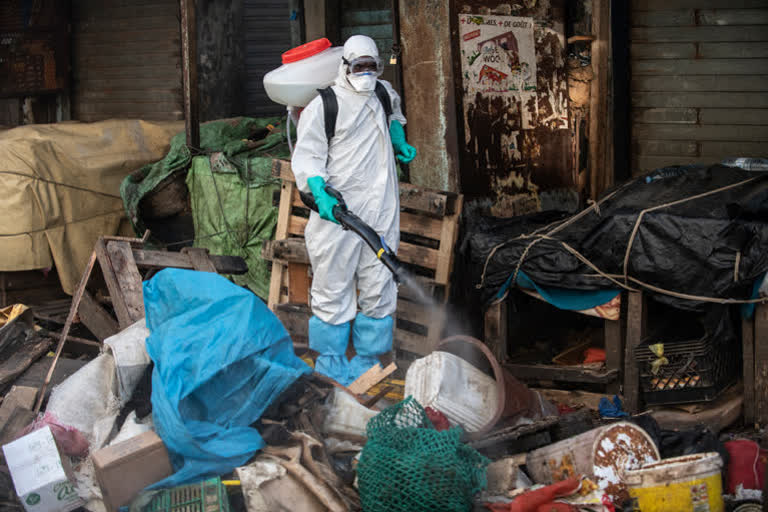Hyderabad: The coronavirus outbreak has so far claimed 500,000 lives globally. It originated from a wildlife food market in China's Wuhan city. The exponential spread and regular occurrences of 'zoonotic diseases' such as COVID-19 has links to climate change, degradation of environment and exploitation of wildlife.
A “zoonotic disease” or “zoonosis” is a disease that has passed into the human population from an animal source.
According to a report from United Nations Environment Programme (UNEP) and International Livestock Research Institute (ILRI), all the above reasons contribute to a pandemic and understanding them will help countries break the chain of transmission.
Read: WHO told coronavirus is airborne
The Highly pathogenic avian influenza (HPAI) or bird flu in 1996, Nipah virus infection in 1998, Severe acute respiratory syndrome (SARS) in 2003 and the Swine acute diarrhoea syndrome (SADS) in 2016 all emerged in Guangdong, China, the report's data said.
Especially in Africa, such outbreaks- Ebola, MERS, West Nile fever and Rift Valley fever- have been common and the spread has been identified to be from animal sources to human populace.
UNEP Executive Director Inger Andersen said that as nations seek to build back better after COVID-19, "we need to fully understand the transmission of zoonoses, the threats they pose to human health and how to minimise the risk of further devastating outbreaks."
"COVID-19 is one of the worst zoonotic diseases, but it is not the first. Ebola, SARS, MERS, HIV, Lyme disease, Rift Valley fever and Lassa fever preceded it. In the last century we have seen at least six major outbreaks of novel coronaviruses," she said
Hence, it is imperative to incoporate human, animal and environmental health. One Health approach unites public health, veterinary and environmental expertise to prevent a possible pandemic.
UNEP and ILRI are urging governments to embrace an inter-sectoral and interdisciplinary approach called One Health. It calls on states not only to buttress their animal as well as human healthcare systems, but also to address factors - like environmental degradation and increased demand for meat - that make it easier for diseases to jump species
“The situation on the continent today is ripe for intensifying existing zoonotic diseases and facilitating the emergence and spread of new ones,” said ILRI Director General Jimmy Smith.
Read: Botswana investigates mysterious deaths of 275 elephants
According to the report, strengthening monitoring and regulation practices associated with zoonotic diseases, including food systems and incentivising sustainable land management practices and developing alternatives for food security can go a long way in preventing outbreaks.



